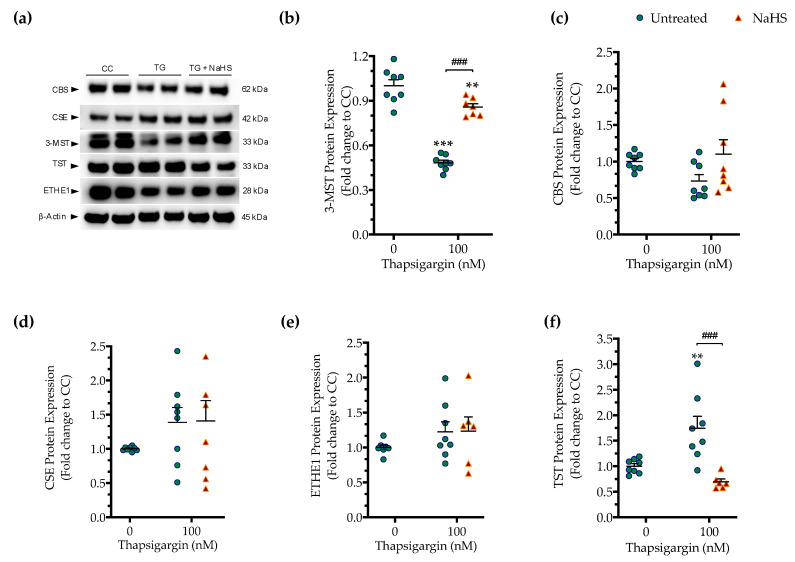Figure 7.
Hepatic persistent ER stress selectively down-regulates the expression of 3-MST enzyme for H2S synthesis; such an effect is reversible upon the exogenous donation of H2S. HepG2 cells were serum-starved for 8 h and treated with the vehicle or 100 nM of thapsigargin (TG), in the presence or absence of 100 µM NaHS for 16 h. Subsequently, cells were harvested and the extracted protein was processed for Western blotting analysis of 3-MST (a,b), CBS (a,c), CSE (a,d), ETHE1 (a,e), and TST (rhodanese) (a,f) enzymes. Each graph line represents mean ± SEM from four independent experiments. Data are expressed as a fold change of the control (vehicle-treated) conditions (CC). ** p ≤ 0.01 and *** p ≤ 0.001 compared to CC; ### p ≤ 0.001 compared to the TG-treated cells. For abbreviations used, please refer to the main text.

